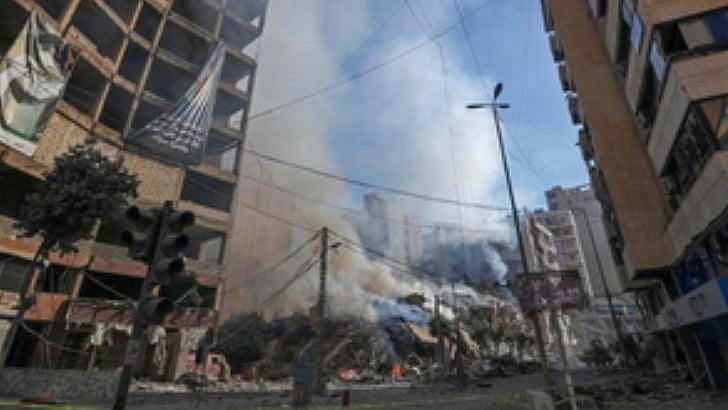World
Israeli airstrike kills Hezbollah commander in southern Lebanon
Karky’s killing came a day after Israel struck Hezbollah arms depots and training camps across Lebanon

In a fresh escalation along the tense Israel–Lebanon frontier, the Israel Defense Forces (IDF) on Friday, 24 October, announced that it had killed Abbas Hassan Karky, a senior Hezbollah commander, in an airstrike deep inside southern Lebanon.
Karky, identified as the logistics commander of Hezbollah’s Southern Front headquarters, was killed when an Israeli missile struck a vehicle in the Nabatieh region, according to a statement issued by the IDF. The Israeli military described him as a key figure in Hezbollah’s recent efforts to rebuild and reorganise its combat infrastructure following last year’s intense hostilities.
“He led and advanced efforts to restore Hezbollah’s force structure, reestablish damaged infrastructure, and manage the transfer and storage of weapons across southern Lebanon,” the IDF said, claiming the strike was aimed at dismantling renewed militant preparations in the area.
Published: undefined
Lebanon’s National News Agency confirmed that an airstrike on a vehicle in Nabatieh had killed Karky, while a Lebanese security source told Xinhua that he was indeed a Hezbollah official, though refraining from elaborating further.
Local reports suggested that Abbas Karky was related to Ali Karaki, the former chief of Hezbollah’s Southern Front who was killed alongside long-time Hezbollah leader Hassan Nasrallah during an Israeli strike last year — a blow that reshaped the group’s hierarchy.
Karky’s assassination came barely a day after Israel carried out a wave of strikes across Lebanon, targeting alleged Hezbollah arms depots and training camps. Lebanese authorities said four people were killed, including an elderly woman, in those attacks.
Just two days earlier, Israel had also claimed responsibility for killing a platoon commander from Hezbollah’s elite Radwan Force, accusing him of smuggling weapons and planning future attacks.
Each of these targeted assassinations, Israel maintains, constitutes an action against “violations of the ceasefire” that has technically remained in place since 27 November 2024 — a fragile truce that paused months of cross-border clashes ignited by the Gaza war.
Yet, despite the ceasefire, the skies over southern Lebanon continue to hum with drones and fighter jets, as Israel insists its operations are “defensive” in nature, meant to pre-empt Hezbollah’s growing threats.
With Karky’s death, analysts warn, the uneasy calm that has held the border in fragile balance could once again teeter — a reminder that in this long shadow of war, even ceasefires breathe uneasily.
With IANS inputs
Published: undefined
Follow us on: Facebook, Twitter, Google News, Instagram
Join our official telegram channel (@nationalherald) and stay updated with the latest headlines
Published: undefined